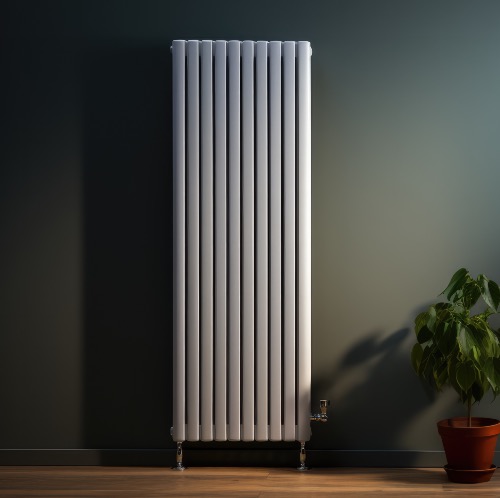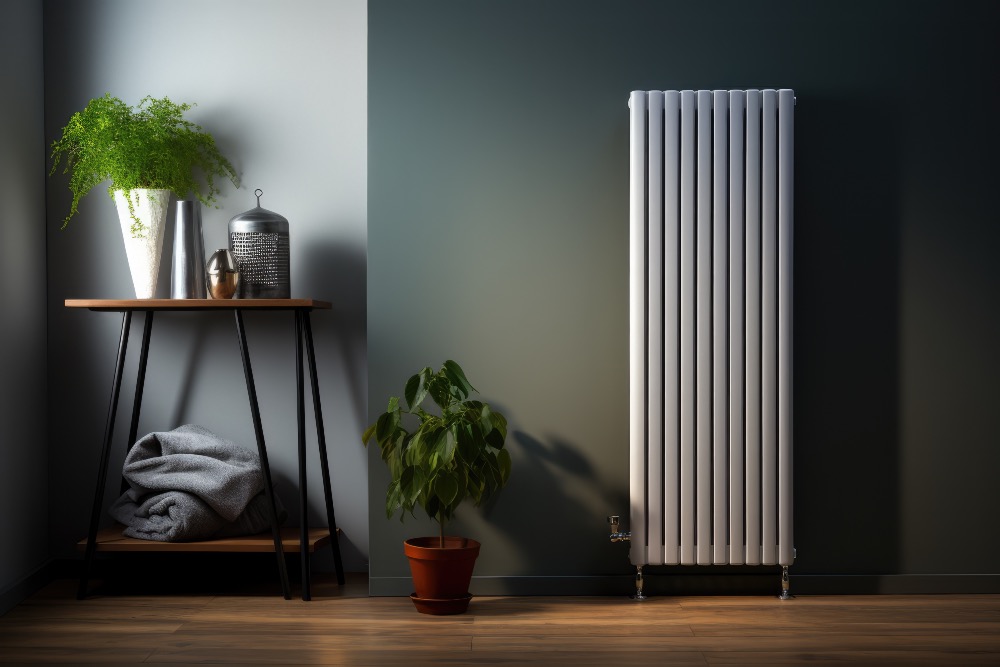Central heating systems are the backbone of your warm and cozy home, especially during the cold months. However, like any system, they require regular maintenance to function optimally. A really important cog in the wheel of maintaining your central heating system is the radiator flush. But what is it, and why is it so essential? Let's dive in.
What is Flushing a Radiator
Flushing your radiators, or flushing your central heating system, is the process of cleaning the inside of the central heating system. It involves removing sludge, rust, and other debris and contaminants that can accumulate over time. These contaminants can hinder the system's performance, leading to cold spots on radiators, increased heating times, and even potential damage to the boiler, pipework, valves and other essential components.
Why Should You Flush Your Central Heating System?
Flushing your central heating system offers several benefits:
Improved time to temperature: A clean system heats up faster, ensuring your home gets warm quickly and efficiently.
Reduced heating costs: A system free of sludge and debris operates more efficiently, leading to reduced energy bills.
Even heating: Flushing can improve radiator performance, removing cold spots and ensuring even heating throughout the home.
Extended system lifespan: Regular flushing can extend the life of your boiler, valves and other components in your heating system.
Prevention of expensive repairs: Addressing minor issues through flushing can prevent major problems down the line.

When Do I Need To Flush My Radiators?
As previously mentioned, the process of radiator flushing is aimed at eliminating the sludge and debris that accumulate within the system and impede its efficiency. Key indicators of this type of reduced performance include:
Brown fluid when bleeding radiators,
Noisy boiler operations,
Radiators taking longer to heat up,
Cold spots, especially at the bottom of the radiator,
Generally poor heating performance.
What Causes Sludge in a Radiator?
The sludge found within your heating system is essentially a blend of various elements, including dirt, decay, and particles of iron oxide. These components gradually detach from soldered connections, radiators, and piping. As time passes, these substances amass and coalesce into a sticky liquid.
Power Flushing vs. Manual Flushing
Power Flushing
Power flushing is a more intensive cleaning method that uses a machine to circulate powerful cleaning chemicals throughout the system. It's especially useful for systems with a significant amount of sludge. It's recommended that you call a plumber to carry out this task. The equipment involved is expensive, and there is a lot of science involved understanding how to dose your system.
Manual Flushing
Manual flushing, on the other hand, involves cleaning each radiator individually and is suitable for systems with minimal sludge. It is not recommended and can be very time consuming. Afterwards, you will need to rebalance your central heating system.
How To Manually Flush Your Central Heating System
Steps
-
Drain your central heating system
First of all, you need to remove all water from your central heating system. This is important, as when you remove each radiator, you will want to make sure water doesn't leak inside your home.
-
Remove each radiator
Next you will need to remove each radiator so you can access the internals of the radiator.
-
Flush Each Radiator
Now you need to flush each radiator. We highly recommend doing this outside, for example with your garden hose. Spray water in one side of your radiator and allow all the gunk to drain out of the other side.
-
Replace each radiator
Now, return each radiator to its original spot. Make sure you reattach them to your central heating system correctly, with the sealing tape.
-
Rebalance your central heating system
Once every radiator is in place, it is time to refill the central heating system and rebalance each radiator.
Radiator flushing is both a proactive and reactive measure to ensure your heating system runs efficiently and durably. By eliminating sludge and debris that has accumulated over years, you're not only enhancing its performance, but also reaping benefits like quicker heating, cost savings, and improving the lifespan of your heating system. Whether through professional power flushing or hands-on manual cleaning, this practice will help you create a cozy and reliably warm home environment.
Frequently asked questions
What is the purpose of flushing a radiator or central heating system?
Flushing a radiator or central heating system involves cleaning out accumulated sludge, rust, and contaminants to improve system performance and efficiency.
How does flushing a radiator contribute to improved heating efficiency?
Flushing removes debris and sludge that can obstruct the system, leading to quicker heating times, even distribution of heat, and reduced energy consumption.
How do I know if I need to flush my radiators?
Signs include brown fluid when bleeding radiators, noisy boiler operations, longer heating times, cold spots, and generally poor heating performance.
How does sludge accumulate in a central heating system?
Sludge is formed from particles of dirt, decay, and iron oxide that detach from various components within the heating system and gradually accumulate over time.
What benefits does radiator flushing offer beyond improved performance?
Radiator flushing extends the lifespan of components, prevents expensive repairs, and contributes to overall cost savings on energy bills.
How does manual flushing differ from power flushing?
If you choose to manually flush your system, it involves individually cleaning each radiator and is suitable for systems with minimal sludge. Power flushing is more thorough and appropriate for heavily contaminated systems.
Can I perform manual flushing on my central heating system myself?
Yes, manual flushing can be done by draining, removing, cleaning, and replacing each radiator. It's a more hands-on process that requires some DIY skills.
How often should I flush my central heating system?
It's recommended to consider flushing your central heating system when you notice signs of reduced performance, such as cold spots or extended heating times.
Is power flushing more effective than manual flushing?
Power flushing is generally more thorough and effective for heavily contaminated systems, while manual flushing is suitable for systems with minimal sludge buildup.
Will radiator flushing eliminate all issues with my central heating system?
Radiator flushing addresses issues related to sludge and debris buildup. Other system problems may require separate diagnosis and solutions.
How does flushing radiators contribute to extending the lifespan of a boiler?
Flushing prevents components like the boiler, valves, and pipework from being stressed by blockages or damaged by floating debris in your system. This will lead to a longer system lifespan and more efficient operation.
What are the potential risks of not flushing a radiator or central heating system?
Neglecting your central heating system by not flushing your radiators can lead to reduced system efficiency, increased energy consumption, cold spots, and unforeseen repairs and maintenance through damage to essential components of your heating system.
Can I switch from manual flushing to power flushing if I encounter more sludge than expected?
Yes, you can switch to power flushing if the level of sludge is higher than anticipated. Consulting a professional plumber is recommended when power flushing your system.
Can radiator flushing help with reducing heating costs?
Yes, by flushing your central heating system and increasing efficient heat distribution and increasing performance, radiator flushing contributes to reduced energy consumption and lower heating costs.
Any more questions?
If you have any queries or questions about the products we sell, or even your next project, give us a shout! We'll try our best to give you a hand.

